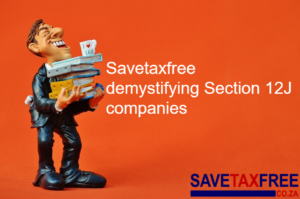Buy-to-let residential property in the UK is a sound investment – provided the ownership is tax-efficient
Related Articles
Sovereign Trust | 1 August, 2017
Buying property in the UK remains a sound offshore investment, especially within the residential buy-to-let ambit. But, as with all offshore decisions, there are many factors to take into account if the investment is to be profit-efficient and tax-savvy.
Bryony Oostingh of Sovereign Trust in South Africa says that, despite Brexit and constantly changing UK legislation, many South Africans are still looking to the UK as a favourable investment destination.
“Sovereign Trust SA may suggest that investors who are interested in entering the UK buy-to-let residential property market should consider setting up a company structure to purchase the property, rather than buying in their personal capacities,” says Oostingh. “Sovereign would register the company as an offshore landlord with HM Revenue and Customs (HMRC). Having a company hold a property means that the net rental income will only be taxed at a marginal rate of 20%, rather than at 40% to the gross amount when property is held by an individual.”
Many South Africans looking at investing in the UK are also looking for tax-efficient offshore succession planning and retirement provision solutions. Depending on their actual needs, a Guernsey Conservo International Retirement Plan (40ee) or a QNUPS (Qualified Non-UK Pension Scheme) are appropriate. These structures are able to hold shares in underlying company structures, so it makes sense to combine them with UK property investing when appropriate for the client’s needs and domiciliary.
If a discretionary trust were to be the shareholder, UK Inheritance Tax (IHT) may apply in a succession situation. A discretionary trust will also be liable for the UK’s 10-yearly charge, which can be as high as 6%, whereas a Conservo and QNUPS are not liable for this.
Another UK tax that investors need to be aware of is Annual Tax on Enveloped Dwellings (ATED). Essentially, this is a tax levied yearly on companies that hold properties which aren’t rented out to a third party. Although ATED doesn’t apply to UK buy-to-let (to a third party) residential property investments, a company like Sovereign, as a director of the property-holding company structure, will still apply annually to HMRC for exemption to ensure that if legislation changes, there is proof of doing so.
A QNUPS is also efficient in terms of Capital Gains Tax when investors want to sell their properties, and can be used to reduce the UK’s Stamp Duty Land Tax (SDLT), which can be a significant amount.
Oostingh says that Sovereign offers a holistic company management service but, as they don’t offer tax or investment advice, they always recommend that clients seek independent tax advice and rely on a trusted financial adviser or property broker when investing in offshore property.






